
Who Cuts Your Hair
 المؤلف:
L.A Hill
المؤلف:
L.A Hill
 المصدر:
Intermediate Steps To Understanding
المصدر:
Intermediate Steps To Understanding
 الجزء والصفحة:
34-1
الجزء والصفحة:
34-1
 5/11/2022
5/11/2022
 1835
1835
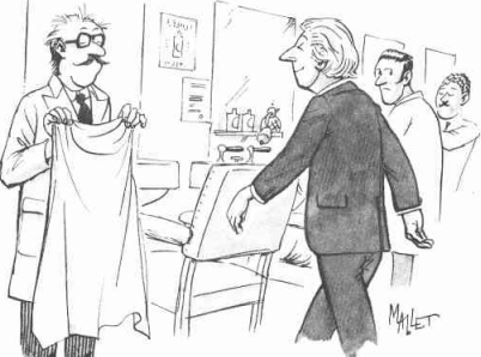
Mark wet to a barber's shop and had his hair cut, but when he came out, he was not happy with the result, and when his friend George saw him, he laughed and said, 'What's happened to your hair, Mark?'
Mark said, 'I tried a new barber's shop today, because I wasn't at all satisfied with my old one, but this one seems even worse.'
George agreed. 'Yes, I think you're right, Mark. Now I'll tell you what to do next time you go into a barber's shop: look at all the barbers' hair, and then go to the one whose own hair has been cut the worst.'
'The one whose hair's been cut the worst?' Mark repeated. 'But that would be foolish!'
"Oh, no, it wouldn't,' answered George. 'Who do you think cut that man's hair? He couldn't cut it himself, could he? Another of the barbers cut it—and he must have been a worse barber than the one whose hair he cut.'
A Which of these sentences are true (T) and which are false (F)? Write Tor F.
- Mark's hair was cut badly.
- He had not been to that barber's shop before.
- It was better than the one he used to go to before.
- His friend George advised him to choose the barber whose hair looked the worst.
- Barbers cut each other's hair.
- The barber whose hair is cut the worst cannot be the worst barber.
B Answer these questions:
- How did Mark feel when he came out of the barber's shop?
- What did his friend George do when he saw him?
- And what did George say?
- What was Mark's answer?
- What did George suggest then?
- And what did Mark answer?
- What did George say then?
- Which barber would have the best haircut?
C Choose the right sentences for each picture:
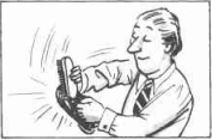
1- a. Mark has cleaned his shoes.
b. Mark has had his shoes cleaned.
c. Mark is cleaning his shoes.
d. Mark is having his shoes cleaned.
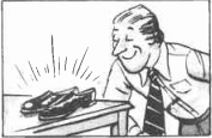
2- a. Mark has cleaned his shoes.
b. Mark has had his shoes cleaned.
c. Mark is cleaning his shoes.
d. Mark is having his shoes cleaned.
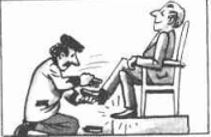
3- a. Mark has cleaned his shoes.
b. Mark has had his shoes cleaned.
c. Mark is cleaning his shoes.
d. Mark is having his shoes cleaned.
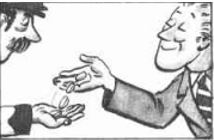
4- a. Mark has cleaned his shoes.
b. Mark has had his shoes cleaned.
c. Mark is cleaning his shoes.
d. Mark is having his shoes cleaned.
 الاكثر قراءة في Intermediate
الاكثر قراءة في Intermediate
 اخر الاخبار
اخر الاخبار
اخبار العتبة العباسية المقدسة


